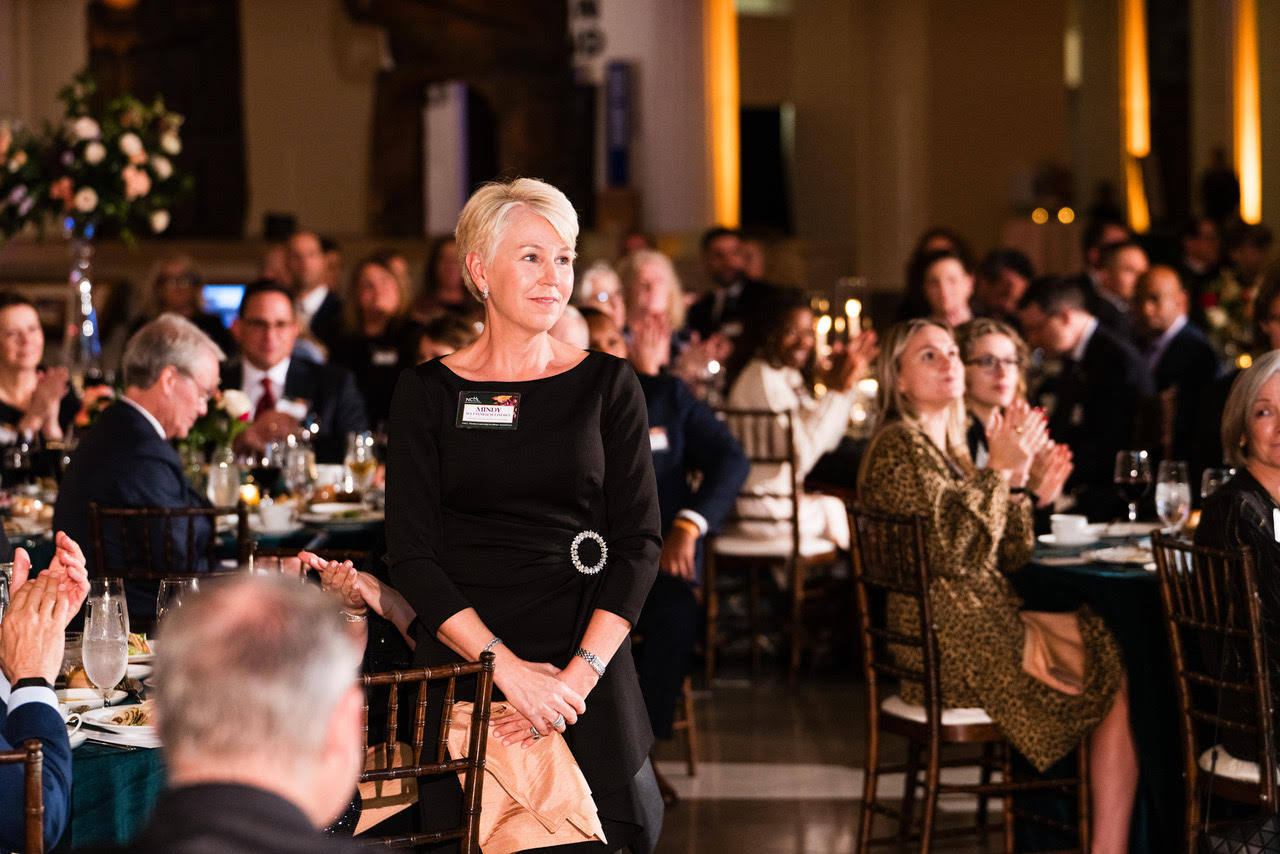Wyttenbach-Lindsey (VCU HSOR ‘05): Leading the National Center for Healthcare Leadership into a New Era
 When she spoke to VCU Health Administration students in March, Mindy Wyttenbach-Lindsey, Ph.D. (VCU HSOR ‘05) asked for a show of hands on how many had heard of the organization to which she was recently named CEO: the National Center for Healthcare Leadership (NCHL).
When she spoke to VCU Health Administration students in March, Mindy Wyttenbach-Lindsey, Ph.D. (VCU HSOR ‘05) asked for a show of hands on how many had heard of the organization to which she was recently named CEO: the National Center for Healthcare Leadership (NCHL).
None went up. But for Wyttenbach-Lindsey, the response was her opportunity “to showcase the great work we do and how we support early careerists,” she said.
And, in her first months since being named CEO in October, she has focused on executing the organization’s strategic plan and enhancing value for its members: hospitals, health systems, graduate programs and fellowships in health care management and administration nationwide.
As a 501(c)(3) founded in 2001 by Henry Ford Health System executive Gail Warden, “our goal is to enhance leadership across health care globally,” Wyttenbach-Lindsey said. “We focus on providing best practices, tools, data and networking opportunities for health care executives within our member organizations who strive for continuous improvement.”
A career built on health leadership
From her first undergraduate class in health administration at Mary Baldwin College, Wyttenbach-Lindsey knew the field was for her.
Her first exposure to hospital administration was at the then-new Augusta Medical Center in Fishersville, Virginia, where she spent a summer shadowing the chief medical officer, who was also a vascular surgeon. Along with business projects, she observed infant deliveries, cardiac surgeries and rehab care, “which piqued my interest in a career that was not just administrative, but focused on the providers and patients at the core of our industry,” she said. “This early mentorship was pivotal in my career and without it, my path would have been different.”
Wyttenbach-Lindsey earned her master’s degree in health finance and management from the Johns Hopkins University Bloomberg School of Public Health and after completing her coursework, served as an administrative resident at the affiliated School of Medicine. While there, she became interested in healthcare innovation, international patient services, corporate partnerships and the workforce aspects of academic medicine.
Pursuing a doctorate in the field, she applied to the VCU Department of Health Administration, which offered her the opportunity to join its Health Services Organization and Research (HSOR) program. The HSOR prepares individuals for careers in teaching, research and consulting at the highest level of capability in the field. She enrolled in 1999, started her first administrative job in pediatrics at VCU Health in 2002 and earned her doctorate in 2005.
“My first executive level role at VCU dovetailed beautifully with my passions for academic health care,” she said. Working in a dyad partnership with the department chair, after five years, she moved into an expanded role in the department of internal medicine. “My time at VCU built a wonderful foundation for me as a professional health care leader.”
Following a decade in academic medicine, she transitioned into a leadership role at Mednax/Pediatrix Medical Group, a publicly traded national physician services organization where she spent 14 years.
During the pandemic, she also served as part-time Executive Director of the Virginia Association for Hospices and Palliative Care (VAHPC), where she guided the organization through both a challenging time and its acquisition. “My time at VAHPC ignited my interest to move back into non-profit healthcare, ideally within a professional or trade association” she said.
Looking ahead in unpredictable times
From research funding constraints to new delivery of care models, uncertainty at the federal level is forcing health care organizations to refocus and plan ahead in creative ways.
“In the environment we're living in now, having strong health care leaders in place within organizations is more important than ever,” she said. “NCHL offers guidance to entities on how peer organizations are operating and innovating to help create paths forward to thrive.”
Need for relationships and teams
In March, during her visit to VCU, she spoke to health administration students and emphasized three key areas of focus: the importance of relationships, teamwork and “embracing the ‘Why’ of what we do as health care leaders.”
“Health care is a relationship-driven industry, and you have to tune into the clinical work,” she said. “We are here only to complete administrative tasks; we must work in partnership every day with our clinicians and focus deeply on the patient and provider experience.”
And, as she settles into her new role, it is those relationships Wyttenbach-Lindsey is focused on expanding. “Our mission is to elevate healthcare leadership excellence,” she said. “By staying true to our focus on peer collaboration, building new industry models and benchmarking, we will continue to make a significant impact.”